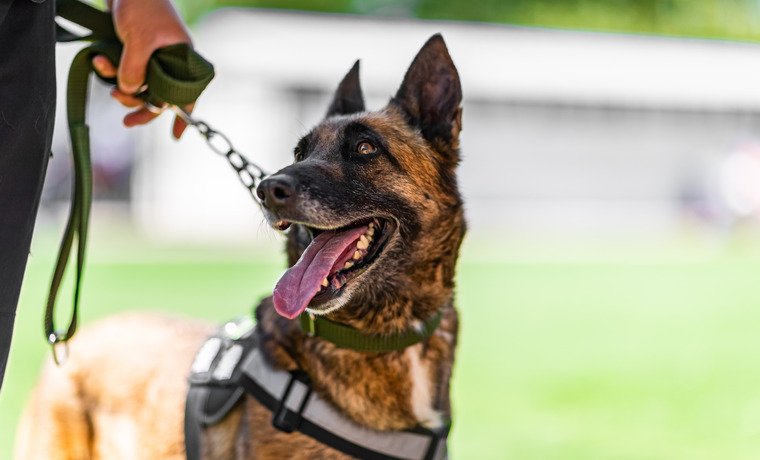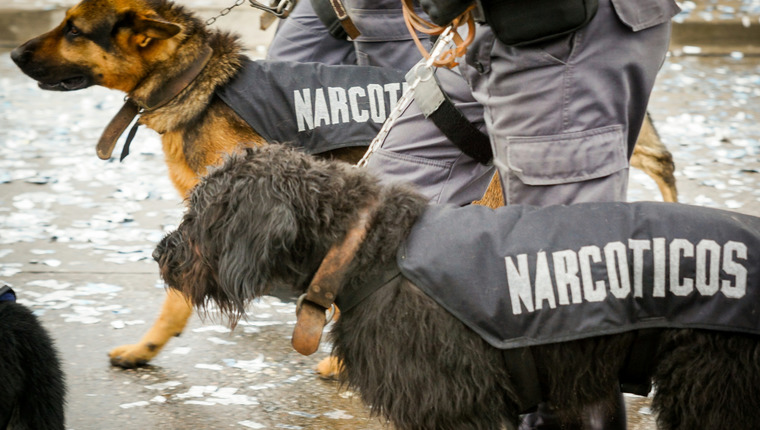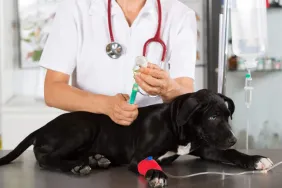
A senior veterinary toxicologist is warning the public about the adverse effects of drug exposure on service dogs. Dr. Renee Schmid has worked with the Pet Poison Helpline since 2013. In a recent press release she says:
“September is National Service Dog Month. In addition to recognizing the critical work traditional service dogs do for their humans, we want to highlight the dangers faced by our nation’s heroic public service animals.”
Specifically, Dr. Schimd names detection dogs and their essential role in various law enforcement agencies. She says that while dogs are trained by their handlers to avoid inhaling and ingesting narcotics, “accidental exposures…do occur.”
Occupational Hazards
Dr. Schmid recalls an instance with a working narcotics dog named Bear. During a property search, the canine officer ingested an unknown substance and shortly after began showing signs of intoxication—namely agitation, pacing, and hyperthermia. Bear’s handler responded by injecting the dog with a dose of Narcan, a medication used to treat opioid overdose.
Alarmingly, the medication had no effect on Bear’s condition. As a result, he was taken to an emergency clinic where the attending vet called the Pet Poison Helpline. Dr. Schimd explained that the visible symptoms were more likely due to exposure to methamphetamine or cocaine, rather than any opioid. As such, this explained the lack of any reaction to the injection. The doctor goes on to say, “given the poor response to the Narcan, and the opposite clinical profile, a stimulant like methamphetamine was more likely.”
Luckily, Dr. Schmid was able to give critical guidance to the vet and their team. Bear received round-the-clock care and a cocktail of medical treatments, including anticonvulsants and treatments to lower his body temperature. The medical team’s training and quick response directly saved Bear’s life. Fortunately, he was released just two days later.
The Difficult Danger of Drug Exposure
Dr. Schimd says there’s an added level of risk and uncertainty with detection dogs in the line of duty. Unlike scenarios of a civilian dog ingesting medicine, where the treatment is easier to find, “with police service dogs, the officers may know what they’re looking for, but they never know what the search dog is going to find. It makes treating these exposed animals even more challenging,” she says.
Thankfully, the Pet Poison Helpline is available 24 hours a day, 7 days a week to provide support to anybody in an emergency situation.
Their phone number is (855) 764-7661.









